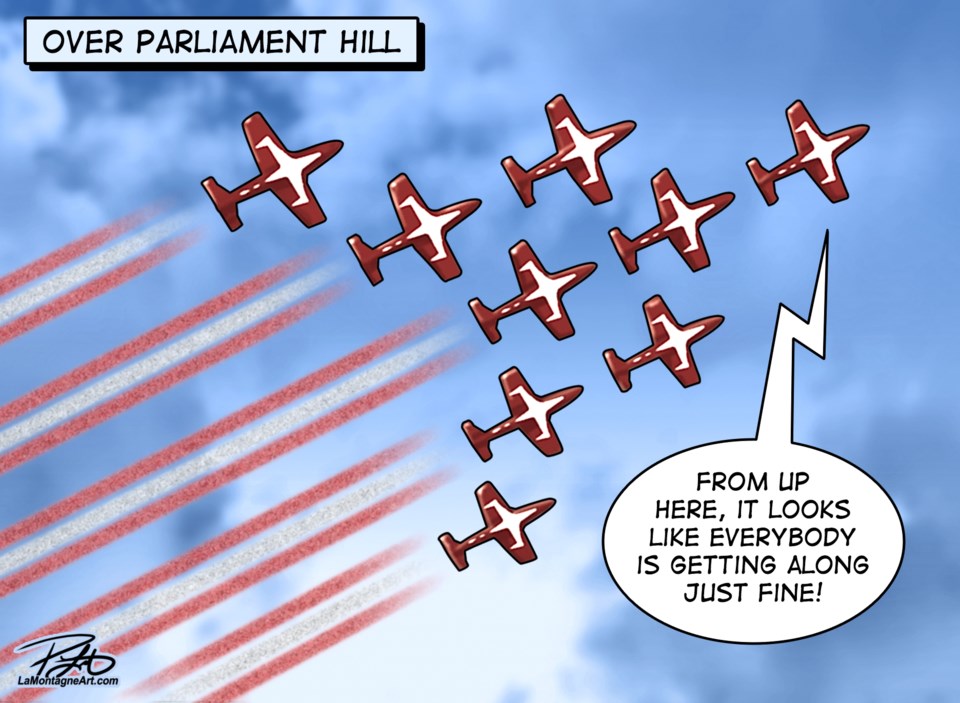Canada Day can be many things for different people and groups.
It can be a time of celebration, remembrance and reflection. What it may be to one person, doesn’t necessarily have to fall in line with another.
The country’s history – like all nations – is complex.
For every deservedly remembered moment, there can be one that needs to come to a better understanding of why it occurred.
Canada’s involvement in the defeat of Germany and Japan in the Second World War was a pivotal success in ending nationalist empires that were a threat to millions, but the internment of foreign nationals – primarily Canadian-Japanese – has long cast a shadow on Canada’s war efforts.
Sir Frederick Banting’s invention of insulin is one of the most important medical inventions in human history. In the same time period, however, the country’s belief in eugenics led to sterilizing individuals without their consent.
Honouring and recognizing soldiers returning from war is important, but our inability to provide basic health care for those suffering from post-traumatic stress disorder from countless wars has led to high suicide rates among veterans and hundreds – if not thousands – of broken families.
Those bad moments have just as much a place in Canada’s history as any positive impact made by the country.
In 2021, Canada Day was a sombre and difficult process.
The unmarked graves at Tk'emlúps te Secwépemc First Nation in British Columbia and Cowessess First Nation brought a serious sense of reflection on what it means to be Canadian.
For Indigenous People, those findings were of little surprise to anyone who called a reserve home, but for many Canadians, the sheer number brought the country to its core.
In the year since, many communities have attempted to move forward in working closer with Indigenous Peoples.
In the towns of Banff and Canmore, the municipal councils have taken steps to follow the Truth and Reconciliation Commission’s 94 calls to action.
Having workshops on better understanding of Indigenous culture, changing signage to add Indigenous language, and a land declaration prior to meetings may feel small, but they all have their own meaning to better improve a frayed relationship.
It’s far more difficult to repair a broken relationship than destroy one, and rather than being looked at as a quick fix, it needs to be examined from a generational lens in mending those relations.
A few weeks prior to those discoveries on First Nations, four members of a Muslim family in London, Ont. were killed in a hate-motivated attack. The Islamophobia shown that day highlighted the country is not immune to the level of hate seen elsewhere in the world.
As a country, we often fall into our stereotypes of apologizing and being more friendly than others while loving maple syrup, hockey and beer. But our identity as a nation is more than a few typecast labels.
While reflection is important, it can be equally important to celebrate when the time is right.
Following a two-year hiatus due to the COVID-19 pandemic, Canmore is once again hosting its popular Canada Day parade with multiple events taking place throughout the day.
In Banff, the pedestrian zone will be an entertainment zone with live music and activities.
Those moments of celebrating the country can be just as important as learning from reflection, but the two need to go hand in hand.
It’s important to move forward in a constructive manner and learn from the past to be better than we were the day before.
True change doesn’t come overnight, but is an effort that never ends.




